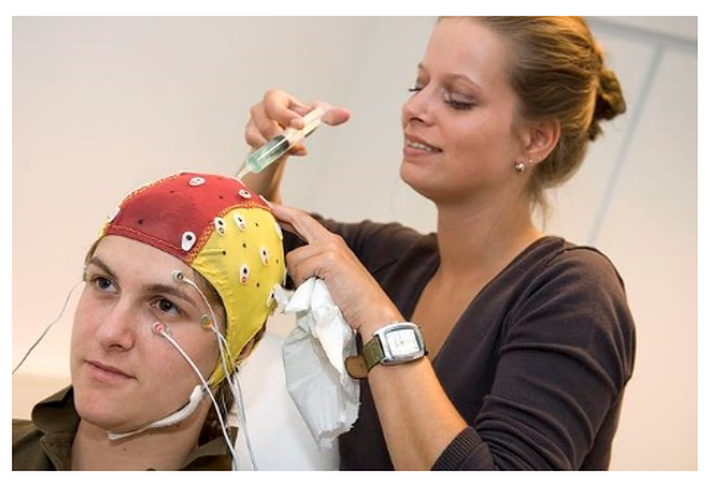Click In the SAFER Lab we conduct Social, Affective, and Forensic Electrophysiological Research to promote a safer society. In our research we study fundamental electrophysiological mechanisms in relation to forensic psychological themes, such as violence and psychopathic personality. Moreover, we aim to translate these neurobiological insights into different fields of practice, such as law, forensic mental healthcare and policy.
Current research themes and projects:
Using neurobehavioral testing with a mobile app to study emotional engagement using a startle paradigm and psychopathic traits, together with Henk-Jan Boele (the BlinkLab, Erasmus MC)
Different projects on risk assessment of sex offenders (ie rapist and child molesters) at the police, together with National Police and Amsterdam Police
Validation of the Dutch version of the CASES empathy measurement, together with Suzanne van de Groep (EUR) and Adrian Raine (University of Pennsylvania)
Effects of taVNS on emotion regulation and aggression, together with Matthias Wieser (EUR), Mathias Wymar (University of Potsdam) and Christoph Szeska (University of Potsdam)
Effects of neuromodulation on electrophysiology and aggression in forensic patients
COVID-19 related conspiracy thoughts and its relation to aggression
Paraphilic interest and the role of dark tetrad traits and response inhibition using EEG
Different pathways to aggression in persons misusing cannabis: the role of paranoia and antisocial traits here to edit.
Current research themes and projects:
Using neurobehavioral testing with a mobile app to study emotional engagement using a startle paradigm and psychopathic traits, together with Henk-Jan Boele (the BlinkLab, Erasmus MC)
Different projects on risk assessment of sex offenders (ie rapist and child molesters) at the police, together with National Police and Amsterdam Police
Validation of the Dutch version of the CASES empathy measurement, together with Suzanne van de Groep (EUR) and Adrian Raine (University of Pennsylvania)
Effects of taVNS on emotion regulation and aggression, together with Matthias Wieser (EUR), Mathias Wymar (University of Potsdam) and Christoph Szeska (University of Potsdam)
Effects of neuromodulation on electrophysiology and aggression in forensic patients
COVID-19 related conspiracy thoughts and its relation to aggression
Paraphilic interest and the role of dark tetrad traits and response inhibition using EEG
Different pathways to aggression in persons misusing cannabis: the role of paranoia and antisocial traits here to edit.


